Who are the Tory members picking UK's next prime minister?
- Published
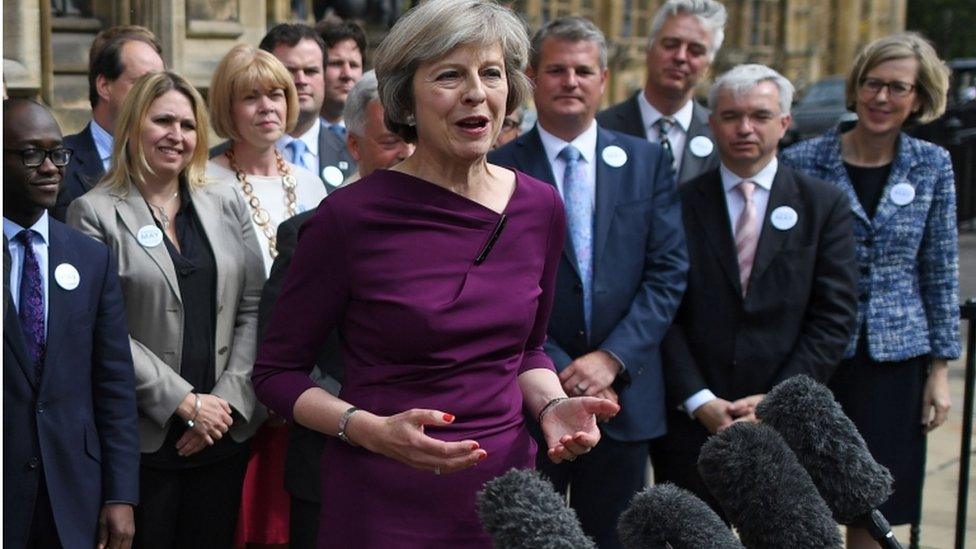
Theresa May has the backing of many MPs - but can she win over the party faithful?
Theresa May faces Andrea Leadsom in the Conservative Party leadership battle. Ballot papers will be sent out to about 150,000 party members before the winner is announced in September. So who are the people choosing the UK's next prime minister?
The chatter about the state of the Tory party is hard to hear above the clatter from the indoor bowling green at the North Enfield Conservative Club.
Women in white bowling shoes pace down the carpet watching the woods swerve while a group of men gather to talk tactics
I met these party supporters early in the EU referendum campaign, when local party associations were being banned from using funds or membership lists for official canvassing.
Now, after a result that has unleashed two weeks of political turmoil, these same men and women are among a select group who will choose our next prime minister.
Conservative MPs have narrowed down the leadership hopefuls to two candidates - Theresa May and Andrea Leadsom - and handed the final decision to party members.
Membership lists
Ballot papers will be sent out in mid-August before voting closes on 9 September.
But party managers at Conservative Campaign Headquarters face an initial challenge in identifying everyone who should be sent a ballot paper, according to Professor Tim Bale from Queen Mary University of London, a leading authority on the party's structures.
He says headquarters will be "furiously" trying to get up-to-date addresses from local party associations who are famously protective of their autonomy.
"The Conservative Party itself doesn't have very good records - it moved towards a centralised database some time back but it's not really got it up and running properly," he says.
"A lot of the figures that they have come in from constituency associations and they are not always that accurate or up-to-date".
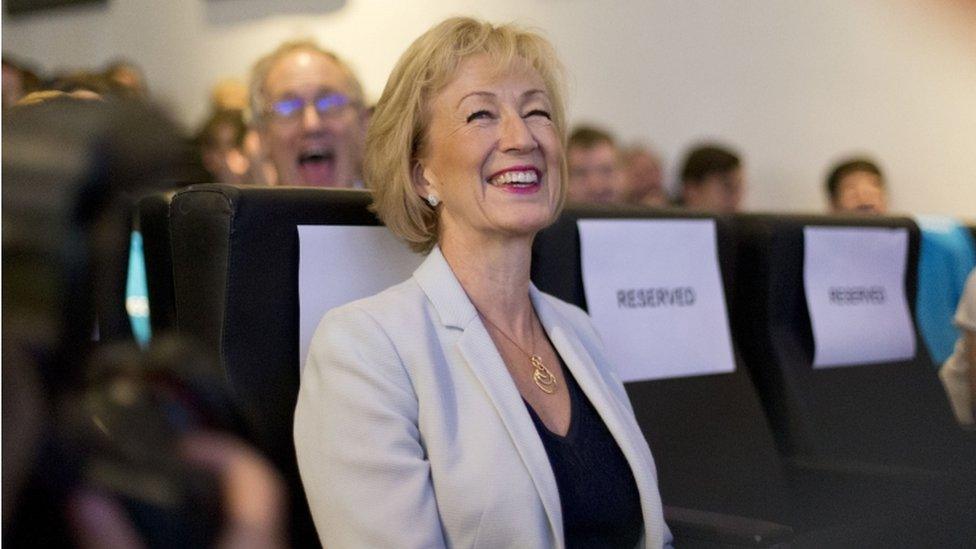
Andrea Leadsom is not as well known as Theresa May but raised her profile as a prominent Leave campaigner
He says in previous leadership contests the party has had to issue more ballot papers after some members complained they hadn't received one.
As a result, the size of the current membership is not clear - the number is thought to range between 130,000 and 150,000.
The most recent study of Tory membership was carried out by Professor Bale and his colleagues after the 2015 general election as part of the Party Members Project by the Economic and Social Research Council, external.
The survey of 1,200 Conservative party members provides a useful insight into the people who will choose the next prime minister.
It suggests more than half of party members are over the age of 60, they are overwhelmingly middle class and they are disproportionately based in London and the South East of England (55% of the membership).
'Blue-rinse' stereotypes
Just over a third have been to university - a lower number than is the case for Labour where about half are graduates.
Fewer than 5% read the Sun, compared with 17% who buy the Daily Mail and 33% who take the Daily Telegraph.
The majority are likely to agree with the view that young people today don't have enough respect for traditional British values, that schools should teach children to obey authority and that people who break the law should be given stiffer sentences.
But many stereotypes about the famous "blue-rinse brigade" simply don't hold, according to Professor Bale.
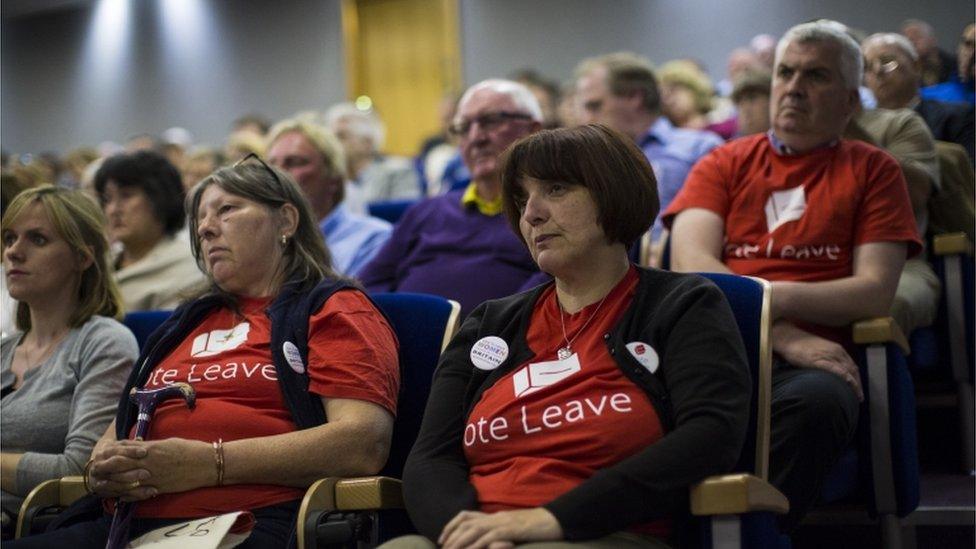
Will the two candidates' stance on Brexit influence the result?
Britain's next female prime minister will be chosen by an electorate that is disproportionately male (70% of members).
They are not "gung ho, slash-and-burn neo-liberals". This large number of retirees is concerned about protecting the NHS and pensions.
But there is a tried and tested rule about leadership elections: Conservative Party members love winners.
In 2005 the membership faced a choice that included David Davis - a candidate who was more right wing, closer to their views on Europe, tax, crime and immigration.
But they chose the moderniser David Cameron by two to one, as he appeared more likely to be able to win an election.
As the Conservative commentator and Times columnist Tim Montgomerie puts it: "If one of (the current) candidates looks a lot more electable, that will weigh heavily on Tory members' minds".
A recent YouGov poll of nearly 1,000 Conservative members, external suggested a run off between Theresa May and Andrea Leadsom would see the home secretary taking 63% of the votes compared with 31% for the energy minister.
But much could still change, and in an era of disconnection with "politics as usual", Mrs Leadsom could play her "outsider" status to members to her advantage, says Mr Montgomerie.
There will be membership hustings, speeches and television and radio interviews to add further scrutiny and the possibility a candidate may slip up.
The membership will weigh three qualities to select the woman that gets the top job - competence, an ability to unite the party and electoral appeal.
Professor Bale calls this the "iron triangle" of leadership.
He believes Theresa May will score highly on the ability to unite the party whereas Andrea Leadsom may struggle; with the pair roughly evenly matched on electoral appeal, although the home secretary is much better known.
These factors matter - In 2001 Iain Duncan Smith beat Ken Clarke for the leadership with the latter seen to have been more likely to split the party, despite being a bigger name.
But what of the importance of the EU Referendum campaign in the race between the Brexit-backing Andrea Leadsom and the Remain-supporting Theresa May?
About two thirds of Tory members voted to leave the EU.
The YouGov polling suggests only about 40% of members thought it was important that the winning candidate supported a Leave vote.
That's compared with about 70% who said the candidate's leadership credentials and vision for Britain were the most important factors.
In short: Brexit will play a role but not a defining role.
- Published7 July 2016
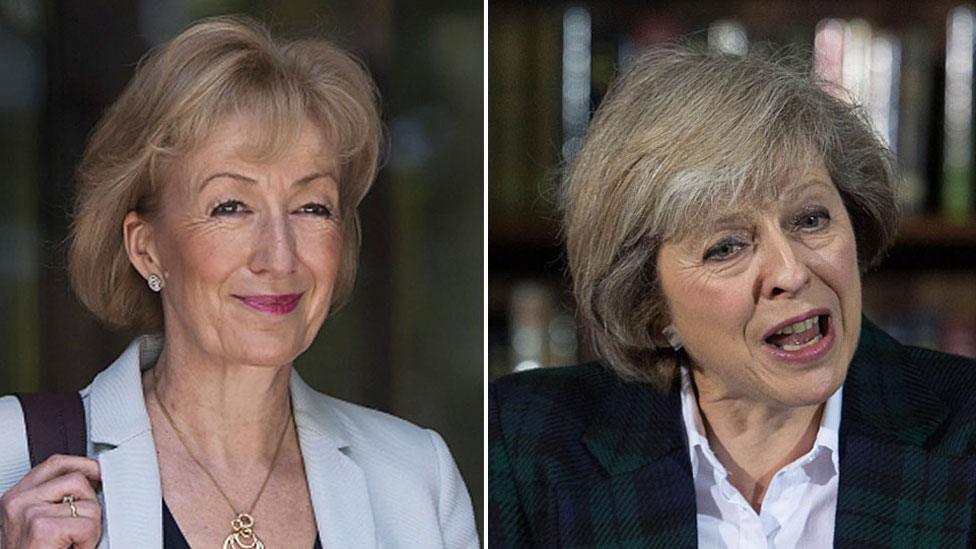
- Published8 July 2016
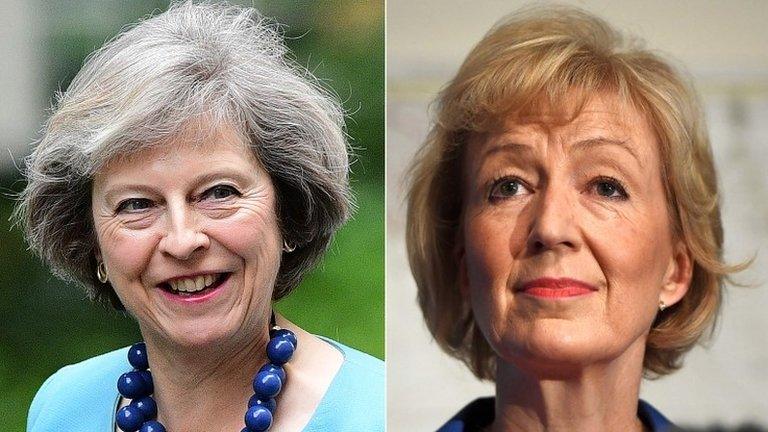
- Published25 July 2016
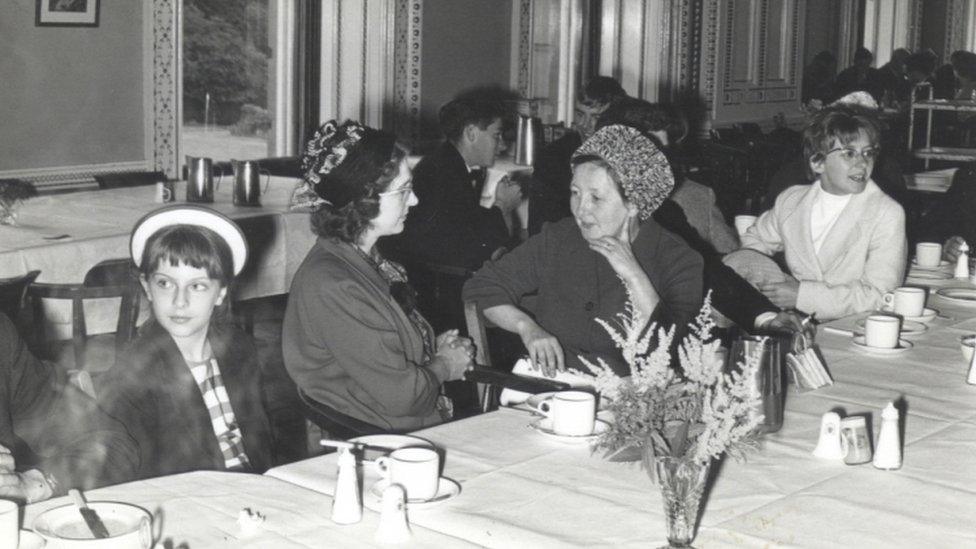
- Published11 July 2016